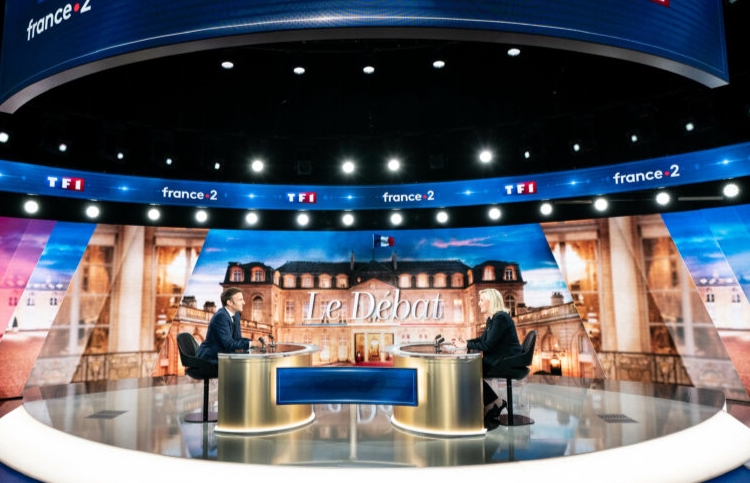Eduardo González
The Minister of Foreign Affairs, José Manuel Albares, celebrated yesterday the victory of French President Emmanuel Macron in the second round of the presidential elections, but warned that the good results of the far-right Marine Le Pen, “the best in its history”, reflect the rise of “authoritarian nationalism represented by Vladimir Putin”.
Albares referred to Macron’s victory at several points throughout yesterday morning. “Yesterday the option that bets on building Europe won,” a “Europe in which the Government of Spain believes, democratic, plural, strong, fair, united and supportive,” the minister told the press upon his arrival at the Europa Press Breakfast Briefing with the Minister of the Interior, Fernando Grande-Marlaska. At the same time, Albares showed his “concern” for the improvement of the extreme right, “which has achieved the best result in history”. “Four out of ten voters in France have expressed their desire for Marine Le Pen to be the president of the Republic,” the minister declared during an interview to Onda Cero.
Going further, the minister later declared, during the inauguration at Casa de América of the initiative Por un nuevo contrato social. Renovar la democracia para no dejar a nadie atrás (For a new social contract. Renewing democracy to leave no one behind), that the rise of the extreme right reflects “the threat looming over democracy in Europe, an authoritarian nationalism” that “in Europe is represented by Vladimir Putin and his illegal and unjust war in Ukraine and that in France bears the name Le Pen”.
According to Albares, the latest international indicators reveal that democracy in the world “is regressing for the first time in many decades and, on a global scale, is at the level of 1989, when the Berlin Wall fell”. For this reason, he warned during the event at Casa de America, it is necessary to initiate a “process of joint reflection” on the “disaffection towards democracy” that can be seen in “our societies”. “It is not a rejection of democracy, but dissatisfaction with some aspects of its functioning” on the part of citizens to whom “democracy does not work for them, it does not respond to their aspirations and needs,” he continued. “We must give a response to these challenges, because, if not, the forces of the extreme right will take advantage of it, will make a criticism of our systems and will stoke the anxieties and fears of our citizens without offering any alternative,” he warned.
French elections in Spain
Emmanuel Macron won yesterday with 58.5% of the votes, against 41.4% Marine Le Pen, which has allowed the National Front to exceed, for the first time in its history, 40% of the votes in a presidential election in which, in addition, the highest abstention since 1969 was recorded.
As usual, the results among French citizens residing in Spain were very different from those of the French electorate as a whole. Specifically, according to the official results released by the French Embassy in Madrid, Macron obtained about 83.65% of the votes in Spain (almost six points less than in 2017) and Marine Le Pen was left with 16.35% (compared to 11% five years ago).
In Spain, 80,369 French citizens were registered on the electoral roll. In the first round 24,531 people voted, just over 30%, while, in the second round, participation hovered around 37%. Macron obtained more than 81.7% of the votes in Madrid and around 85.6% in Barcelona. The best results were recorded in Bilbao, with almost 90%. In the first round on April 10, the president received the support of 39.7% of French voters living in Spain, compared to 27.35% in France as a whole, while Le Pen got just seven percent, well below the almost 24% she obtained in the total electorate.







